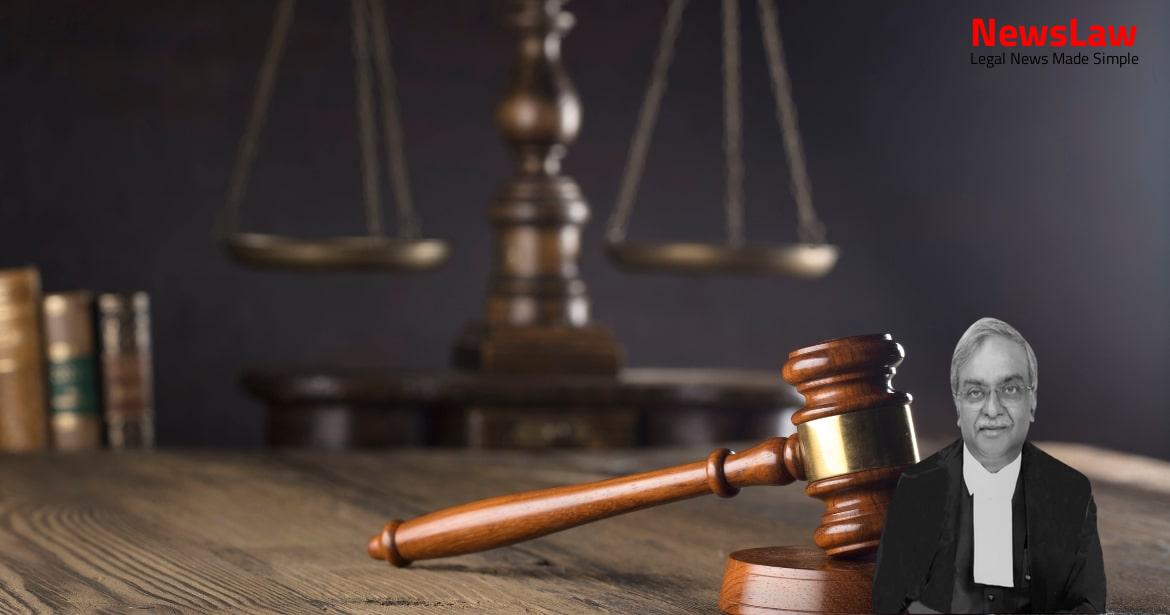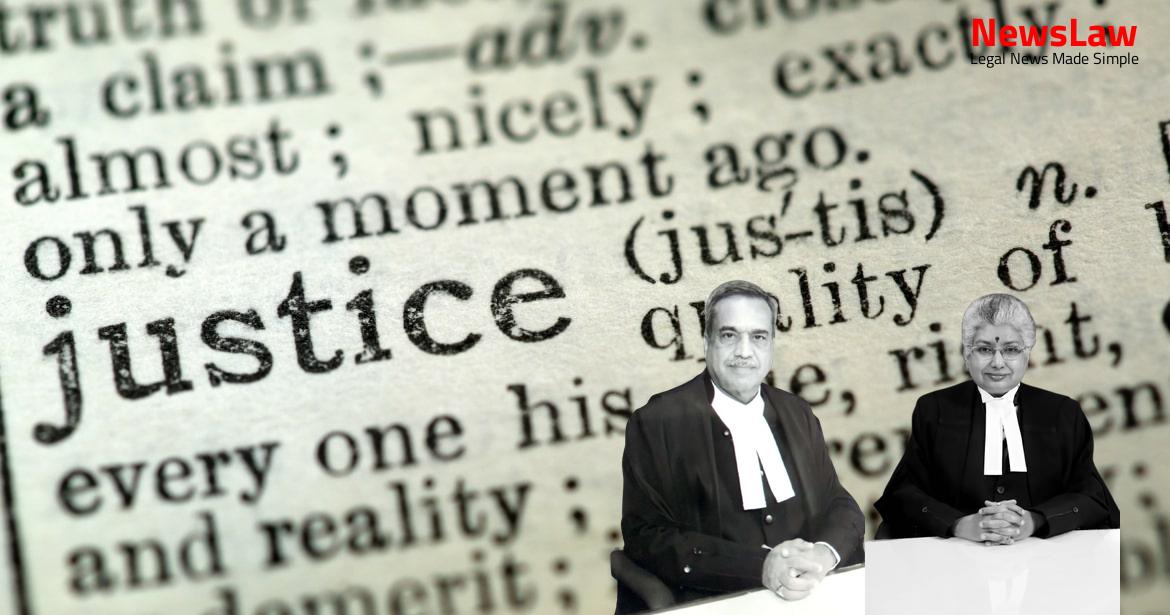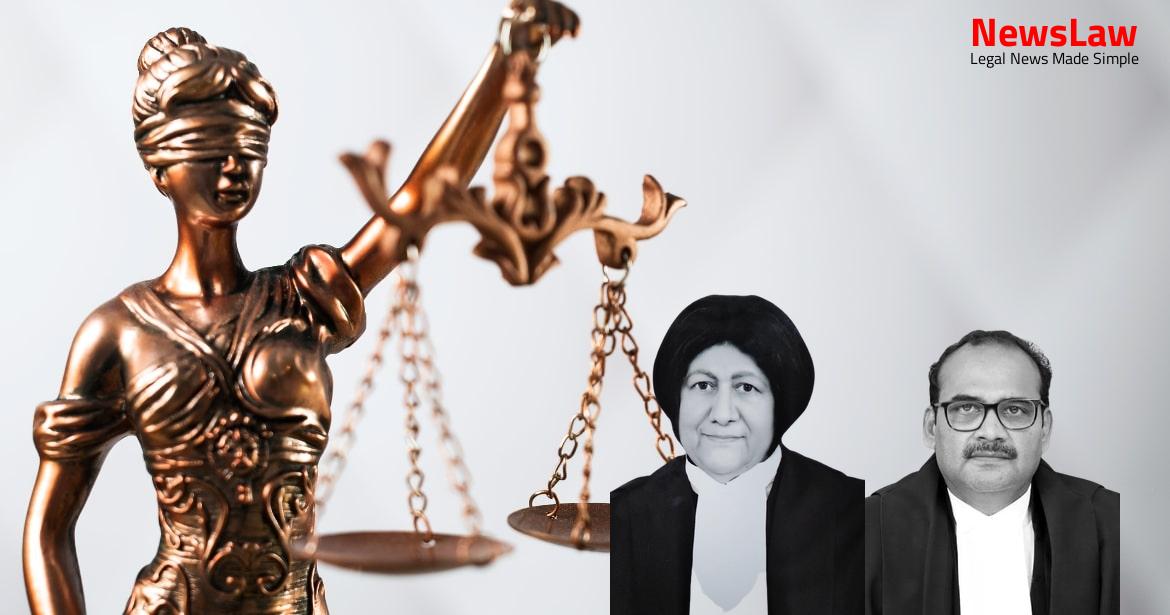In a significant legal development, the Supreme Court of India has issued a judgement in the case of State of Uttar Pradesh vs. Vivek Pal and Punit Pal. This case involved the rejection of bail granted by the High Court to the mentioned respondents. The Supreme Court’s decision marks a crucial moment in ensuring justice and upholding the principles of law and order.
Facts
- A chargesheet was filed on 14.03.2022 under various sections of the IPC and the Criminal Law Amendment Act, 2013.
- The FIR was lodged by the Appellant on 03.01.2022, stating the incident where the Deceased was physically assaulted and eventually succumbed to his injuries.
- Accused persons were apprehended, and a bail application by Respondent No 2 was rejected by the Trial Court and later granted by the High Court.
- Another accused, Punit Pal, also had a bail application rejected by the Trial Court but was granted bail by the High Court.
- The Appellant filed appeals against the bail orders of both Respondent No 2 and Punit Pal.
- An inquest report and post-mortem revealed the cause of death as coma due to head injuries inflicted by the accused.
- The present appeal questions the correctness of the High Court’s decision to grant bail to Respondent No 2, Vivek Pal.
Also Read: Rajasthan vs Hisar: Supreme Court Quashes FIR and Imposes Costs
Issue
- The main issue in the case is whether the High Court appropriately exercised its discretion under Section 439 of the CrPC to grant bail to Punit Pal in relation to the proceedings from the FIR.
Also Read: Satish Jain vs. State of Madhya Pradesh – Land Ownership Dispute Judgment
Arguments
- The High Court was criticized for granting bail to the accused despite charges being framed and recovery of the weapon used in the assault
- Concerns were raised about the accused’s ability to influence witnesses due to their influence in the area
- Misuse of liberty was pointed out, with instances of threats to witnesses and even the appellant himself
- Support was shown by the State of Uttar Pradesh for the stand taken by the Appellant
- Both accused were also facing prosecution under the Uttar Pradesh Gangsters and Anti-Social Activities (Prevention) Act, 1986
Also Read: Understanding the Legal Implications: Mukhtar Zaidi v. State of Uttar Pradesh & Anr.
Analysis
- Respondent No 2 and Punit Pal are charged under multiple sections of the IPC based on evidence including post-mortem report and witness statements.
- The High Court granted bail to Respondent No 2 and Punit Pal in relation to the FIR.
- The grant of bail is a discretionary power that should not be used arbitrarily, capriciously, or injudiciously.
- In the case of Prasanta Kumar Sarkar v. Ashis Chatterjee, certain parameters were enunciated to evaluate the correctness of an order granting bail.
- The order granting bail must not suffer from the vice of non-application of mind, rendering it illegal.
- The High Court must exercise its discretion judiciously, cautiously, and strictly in compliance with the principles laid down by the Supreme Court in various decisions.
- Factors to consider while granting bail include prima facie grounds of the accused committing the offence, nature and gravity of the accusation, severity of punishment upon conviction, risk of the accused absconding, character and behavior of the accused, likelihood of the offence being repeated, the reasonable apprehension of witnesses being influenced, and the danger of justice being thwarted by granting bail.
- The Supreme Court does not ordinarily interfere with an order of the High Court granting bail, unless it is found that the High Court’s discretion was not applied properly or was contrary to the directions given by the Supreme Court.
- Granting of bail should be within the bounds of the law and comply with the conditions set by the Supreme Court.
- The decision to grant bail should consider whether there is a prima facie or reasonable cause to believe that the accused committed the crime, without delving into a detailed examination of the evidence at that stage.
- Allegations of attempts to intimidate the Appellant and identified witnesses were levelled against Vivek Pal @ Vikki Pal and Punit Pal.
- The High Court should not have granted bail to Vivek Pal @ Vikki Pal and Punit Pal due to the seriousness of the crime, the conduct of the accused persons, and the impact of the crime on society.
- The accused persons were involved in a broad daylight murder that led to the closure of a market for 10 days due to their influence in the area.
- The orders granting bail to Vivek Pal @ Vikki Pal and Punit Pal dated 24.04.2023 and 31.10.2023 are set aside as they cannot be sustained.
Decision
- The individuals mentioned shall be taken into custody immediately.
- The appeals have been allowed with the specified conditions.
- The bail bonds of accused Vivek Pal @ Vikki Pal and Punit Pal are cancelled.
- A copy of the judgment will be sent to the Trial Court and PS Lalganj, Basti, Uttar Pradesh for necessary action.
- The Trial Court is instructed to conclude the trial promptly, preferably within a year of receiving the judgment copy.
- The observations in the judgment should not be taken as a reflection of the case’s merits during trial.
Case Title: RAMAYAN SINGH Vs. THE STATE OF UTTAR PRADESH (2024 INSC 323)
Case Number: Crl.A. No.-002168-002168 / 2024



